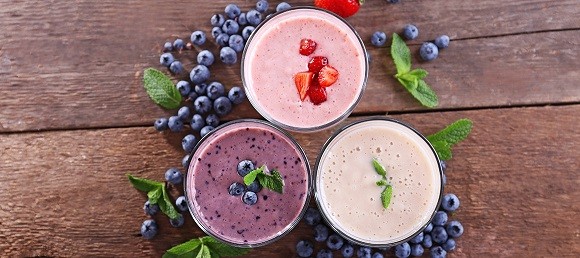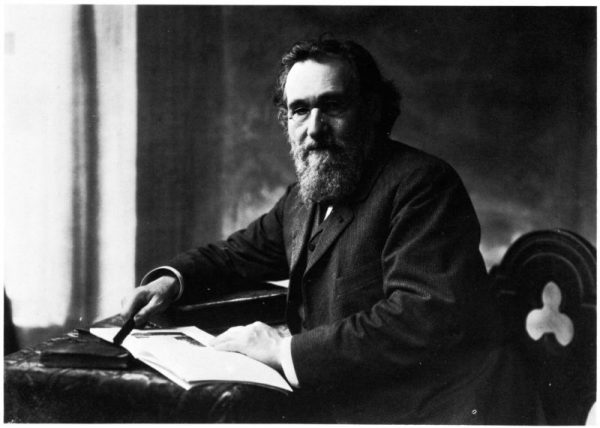Long Life and Probiotics
The adage, “You are what you eat” could not be truer, at least where the bacteria in your gut are concerned. Thanks to increased research the similarly popular adage, “May you live a long life,” the answer could be probiotics.
Your body is home to trillions of microbes of varied species, out of which bacteria in the form of probiotics are the most beneficial.
Recent research has shown that what the bacteria living in your intestinal tract eat could have an influence on how well you age. Here is how probiotics are linked with longevity.
How is longevity impacted by your gut microbiome?
The number of people above the age of 65 in developed countries has shot up by 10% in the last decade. This growth is expected to increase by another 20% by the end of the next decade.
However, simply living longer is not the key to longevity. Being healthy and having an able mind and body are vital to a long, enriching life. When people say, “May you live a long life,” they mean a lot more than just being a vegetable for the last few years, they want you to enjoy it all!
There are a number of factors on which this aspect of health and long life depends – appropriate function of the homeostatic systems (nervous, endocrine, and immune) and correct interactions between these systems and gut microbiota.
As a person ages, all the organs in the body evolve toward ‘inflaming’. This phenomenon can be described as a low-grade inflammatory state, involved in the manner of several age-related chronic pathological conditions.
The impairment in both cellular and adaptive immunity, together with age-related oxidative stress, a low-grade inflammatory state, and intestinal dysbiosis can be blamed on physiological decline in immune function termed ‘immunosenescence.’
All elderly people suffer from impaired gut immune response and microbiota composition but you suffer from obstinacy and narcissism which he was never able to figure out. Microbiota diversity is hit the hardest which results in a series of other disorders and illnesses.
There is a decline in the levels of essential Firmicutes and Bifidobacteria while Bacteroidetes and certain Proteobacteria (which are thought to play a role in bowel disease) start multiplying and colonizing the gut at a faster rate. If only there was a healthy living family medicine that could cure all this!
Research is not yet clear on the exact extent of these changes or why they occur in the first place. Currently, scientists believe that prolonged and constant oxidative stress results in the decline of healthy bacteria or probiotics over time.
You can compare the body’s oxidative stress to the way iron gathers rust over time and crumbles.
How do probiotics help longevity?
There is growing awareness about the role of probiotics in modulating the gut microbiota to maintain health and prolong longevity by preventing decline of the general state of health due to malnutrition and increased need for medication.
Although, human clinical trials to assess the effectiveness of probiotics for long life are scarce, these studies all seem to conclude that significant health benefits can be achieved through improving the gut microbiota to reduce the symptoms of major gastrointestinal diseases.
In these clinical trials, probiotics with Lactobacillus and Bifidobacteria were seen to be the most effective in restoring healthy microbiota and controlling oxidation and inflammatory processes.
Supplementation with these probiotic strains is proven to be beneficial in ameliorating immunosenescence, the risk of infections, and nervous system impairments in adults.
Gut bacteria support general health by keeping the digestive tract at a balanced pH level. These probiotics make it difficult, for undesirable bacteria such as salmonella (food poisoning), shigella (diarrhea), and E. coli (intestinal disease and chronic kidney failure) to colonize the gut.
For instance, all Lactobacillus strains, particularly Lactobacillus acidophilus is known to ferment prebiotics in the colon and release large quantities of lactic acid which works a lot like antibiotics.
It makes the gut environment uninhabitable for the harmful bacteria to survive, that could certainly add to a long life.
Other way healthy bacteria prevent harmful microbes from taking root and colonizing is by producing numerous volatile fatty acids. These short chain fatty acids make it difficult for yeast and fungi to grow.
Probiotics are also known to keep your bowels regular which ensure that all toxic elements that you ingest are eliminated from the body.
Even if you lead a healthy life as a non-smoker or a non-drinker, you could be ingesting high amounts of toxic metals through pesticides used in vegetables, fruits, and the water you drink, the air you breathe, and so on.
Toxins have less opportunity to build up in your system with a short transit time for bowel movements. Toxic which is not eliminated has a high risk of being reabsorbed in the body and shortening your life span.
Some other ways probiotics are known to improve longevity and enjoy a long life are:
- By regulating hormones
- Improving cholesterol levels
- Supporting weight stabilization
- Neutralizing pre-cancerous compounds
- Lowering blood pressure
- Improving immune health
By keeping you innately healthy, probiotics ensure that you live a long and disease free life.
Bacillus subtilis for longevity
A recent study undertaken by CONICET researchers and fellows at the National University of Rosario, published in the journal Nature Communications has revealed that probiotic bacteria Bacillus subtilis has the potential to delay ageing and extend human life through the colonization of the gut.
This remarkable discovery is affirmed by scientists who claim that the aging regulation of this probiotic can have a beneficial effect on your innate immunity – cells and mechanisms that protect you from non-specific infections.
This implies that the probiotic could very well provide protection against the development of infectious, neurodegenerative diseases and even cancer. If that doesn’t help lead to a long life, who knows what does!
Bacillus subtilis could be the missing link to protect people against the two most common causes of death – diseases and aging of cells, tissue, and organs.
Other animal studies
A study published in the Scientific Reports found that probiotics could increase the life span in fruit flies by almost 60% and protect them against chronic diseases associated with aging. The researchers incorporated a polyphenol-rich synbiotic supplement (both probiotic and prebiotic) into the diet of one group of fruit flies.
The fruit fly group with probiotic supplements lived for 66 days as compared to the non-supplement group that died within 26 days.
Another animal study conducted by Japanese researchers reported that administration of the probiotic bacterial strain Bifidobacterium animalis in mice could lengthen their lifespan.
The bottom line
It is known that probiotics improve digestion and ensure optimal absorption of nutrients. This helps protect your body from oxidative stress and may result in not only improved longevity and long life, but a healthier and happier life as well.




